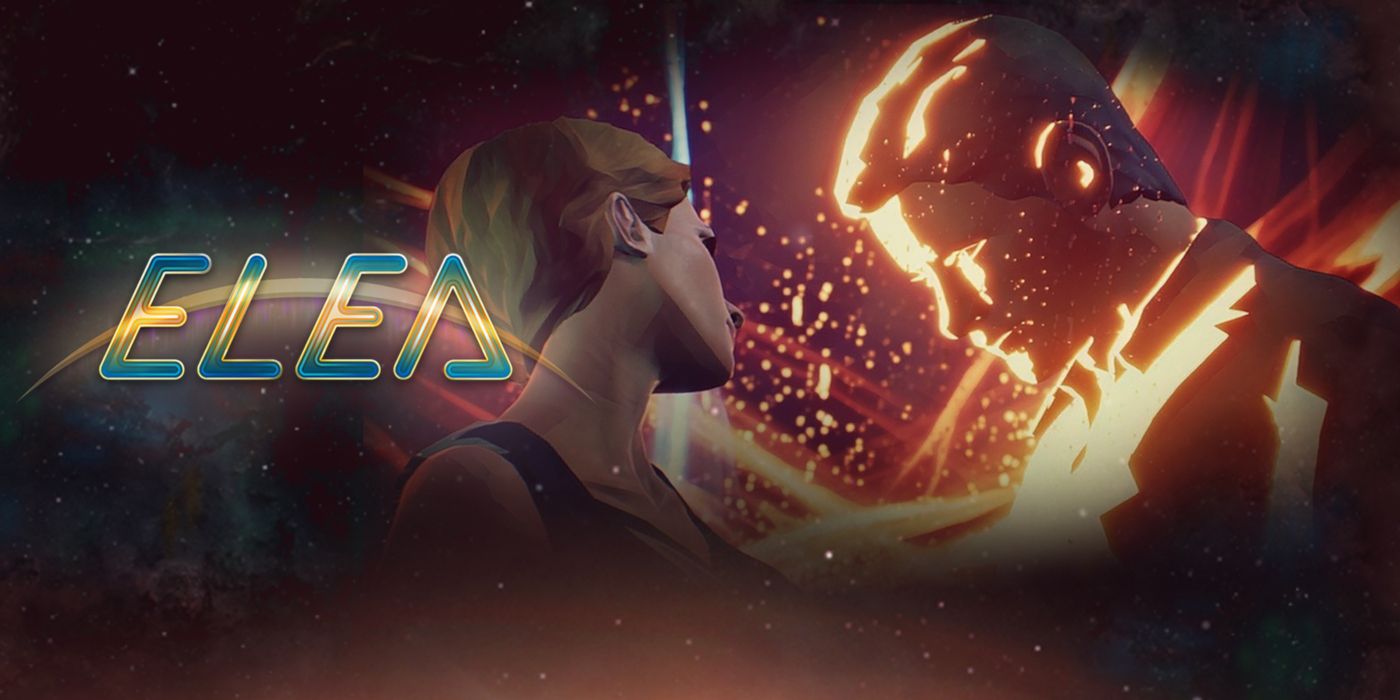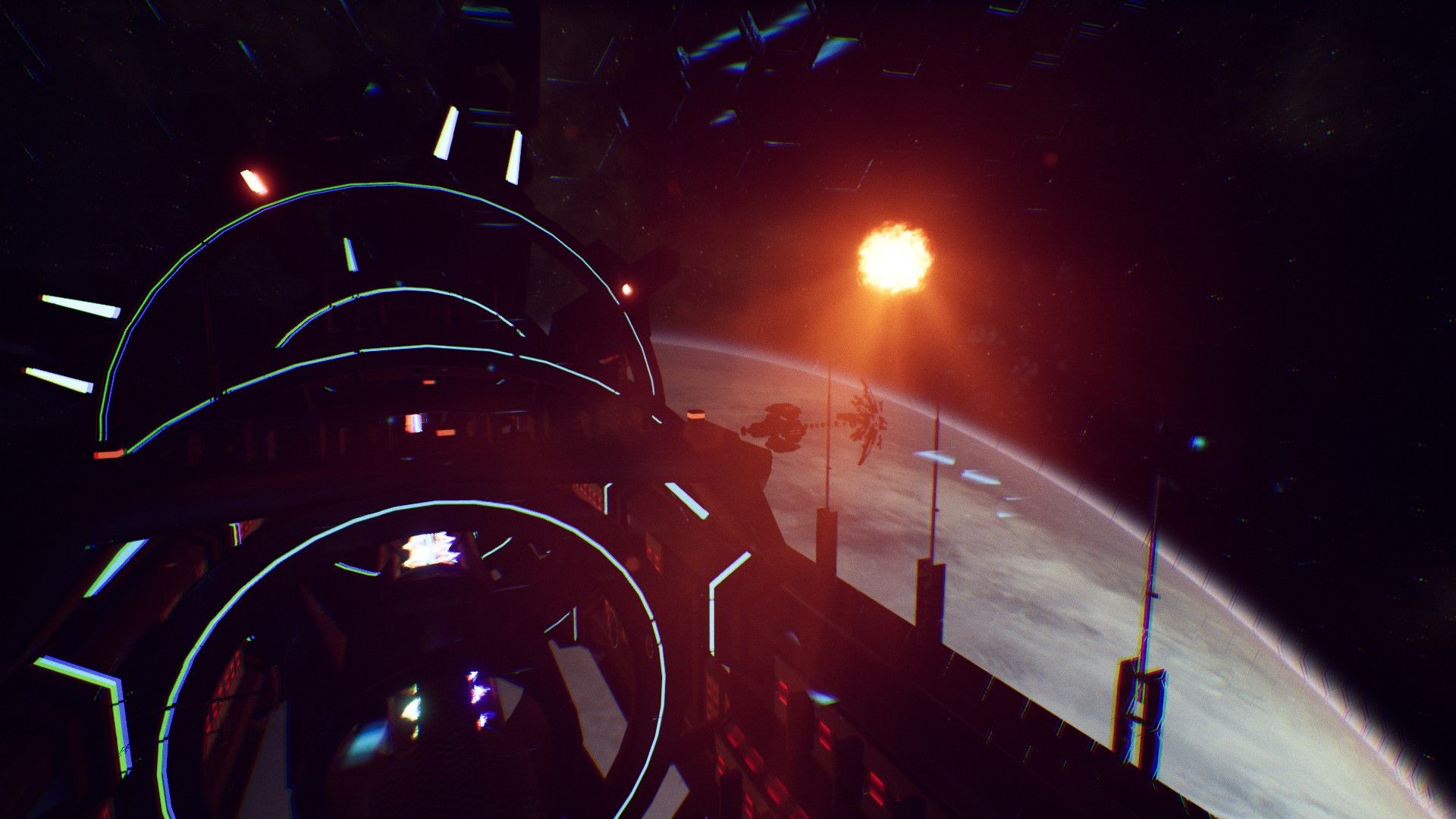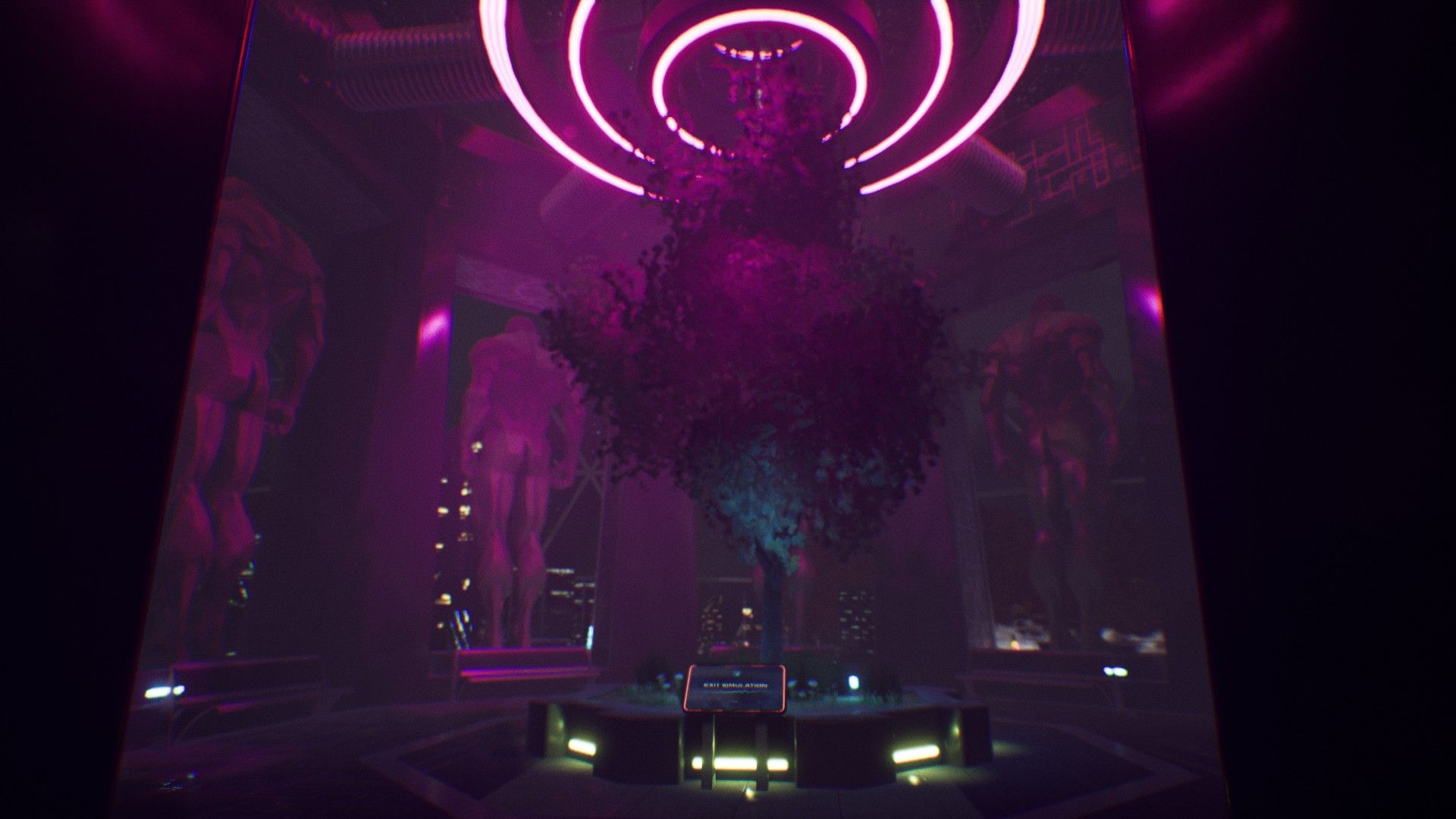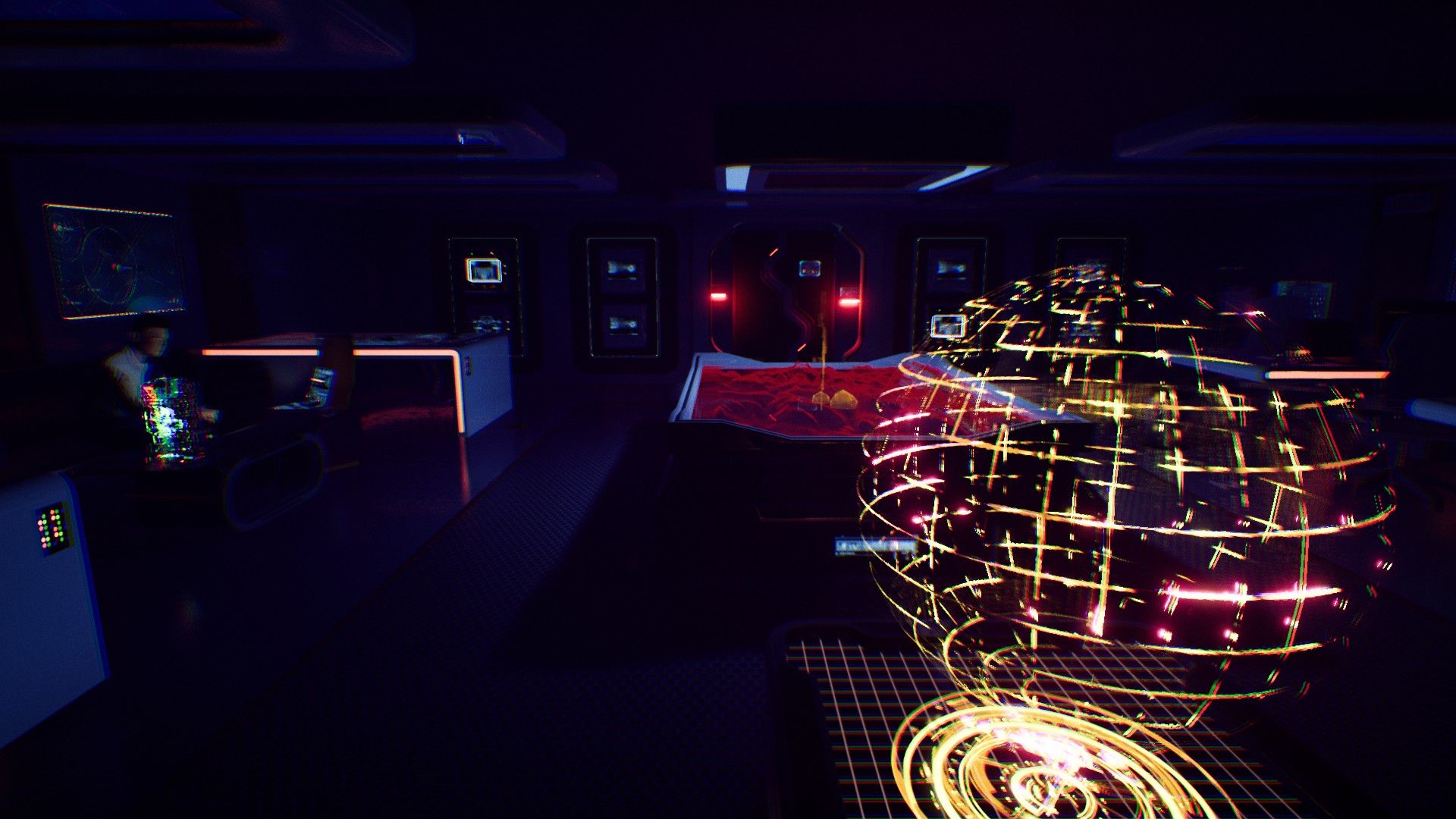
Games under the genre umbrella of “walking sim” can be broken down into their individual manicured moments designed to delight, astound, pushing players to unearth more of them. Sometimes, the episodic, compartmentalized structure of these scripted scenarios is woefully apparent, but certain games can subsume them into the fabric of the experience, making progression feel naturalistic and nonlinear. The new game Elea, now released out of early access, struggles in this regard, causing its isolated moments of greatness to come off as jagged and crudely cut against the experience as a whole. It has its treasures, but they path to discovering them is rarely, if ever, a satisfying one.
You play River Elea Catherine Jones (and are reminded of that name every time the game is booted up), a space-faring scientist on the experimental colonizing vessel the RSS Recovery – or, rather, you play through her memories in the Mindscape device, an MRI-like machine whose purpose seems strongly reminiscent of the film Eternal Sunshine of the Spotless Mind. Elea has agreed to undergo a procedure to scrub certain unwanted memories, which sends the player into the preceding events and traumas she’d rather avoid or put to rest.
Related: Into The Breach Review - A Modern Tactical Classic
Another film comes to mind frequently while playing the game: 2001: A Space Odyssey. Aside from Kazumi, a very HAL-like AI presence onboard the ship, the infamous Star Gate sequence from Kubrick’s classic is riffed on repeatedly, filtered through a kind of modern glitchy vaporwave aesthetic. Elea journeys through her own memories but is frequently stymied by either technical errors or supernatural intrusions, resulting in some well-crafted, even oddly disturbing hallucinogenic scenarios. Expect outrageous rainbow-hued nightmares, all of which have an uncanny feel within the already otherworldly setting of an experimental windmill-shaped spaceship.

The developers know their strengths, because Elea’s wonderful dream portions are doled out a reliable clip, and don’t seem to have a recognizable equal in gaming. Sadly, almost every other aspect of the game feels poorly-designed and deeply unsatisfying to play. That means that walking speed is annoyingly sluggish, and in the sections of the game where players are allowed to run (a surprisingly random boon, prompting the frequent system message “you can’t run at the moment”) the character is granted an invisible stamina system, where even a slight 20-foot jog causes heavy breathing and a forced slower pace. The first playable scene involves a memory taking place during Elea’s pregnancy, which at least made the sluggish walking feel demonstrably linked, but it otherwise feels out of place and extends the playtime in a synthetic way.
Sure, it’s an “Episode 1,” but that doesn’t excuse the fact that there’s very little of interest to do besides triggering the next story event. The first-person cursor allows for picking up objects and inspecting them – similar to Gone Home – except this rarely ever serves a significant gameplay purpose. The objects that can be interacted with are always completely random, with certain surfaces brimming with sci-fi bric-a-brac that cannot be touched or identified. There are also digital tablets scattered around the RSS Recovery, and these at least contain some reasonably well-written world-building content, like news reports or inter-office emails.

That writing quality extends to the overall script as well, which is generally strong and alluring — it’s too bad that the voice acting is but a shadow of that standard. While the voice actress who plays the main character should be commended for her emotive yet nuanced delivery, virtually every other character in the game can barely muster competence. Even in the first section, where a pregnant Elea speaks with her off-site husband Ethan via phone, the jarring disparity between their performances ventures into unintentional comedy. It’s really that bad, but it’s also predictably sub-par, and players will probably get inured to it a few hours in.
Unfortunately, that also represents the entirety of the game's length. Elea is short, and aside from the slow character movement, most every part of the narrative feels like empty padding on the several hours of activity therein. There's never really more than one task to complete at a time, with certain mid-game objectives specifically designed to send Elea trundling down hallways in opposite sections of the ship, pursuing some arbitrary and esoteric chore. Still, the rewards for completing these tasks are usually another enjoyably surreal sequence, but the clunky deliberations of every in-game action causes any apparent rhythm to feel outright cruel.

It’s a shame, because the narrative and detailed texture of the game manages to out do its frustrations. In very Episode 1-styled fashion, more mysteries are introduced than are answered, and players may well find themselves looking forward to further episodes in search of a potential resolution, or to root out more disarming dream sequences. It’s a question of one’s individual patience to endure considerable design flaws as to whether Elea is worth purchasing, but fans of walking sims and tripped-out eye candy will probably think it’s $10 well spent.
Next: Morphies Law Review
Elea is out now on Xbox One and Steam for $9.99. A digital PC copy was provided to Screen Rant for purposes of review.
from ScreenRant - Feed https://ift.tt/2wYgEYk


0 Comments